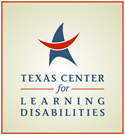Principal Investigators
- Dr. Elena Grigorenko, University of Houston
Additional Investigators
- Dr. Olga Vladimirovna Burenkova, University of Houston
- Dr. Oksana Naumova, University of Houston
Purpose
Project 5 is a new initiative that moves TCLD into the field of genetics. Growing evidence, provided predominantly by animal model research, highlights the importance of dynamic change in the epigenome (or a system of genome activity regulation) in brain plasticity in general and learning in particular. This project is one of the first attempts to investigate the temporary dynamics of DNA methylation (one of the main epigenetic mechanisms of gene activity regulation) in relation to controlled learning.
This project offers a novel line of research focused on the relationship between the dynamics of response to educational intervention and DNA methylation across 21 months, sampling behavior and the methylome at three time points—before, during, and after a high-quality intensive reading intervention. A sample of 672 adolescents are stratified into groups, typically developing students (from Project 2: Executive Functions and Attention) and ELs with persistent reading difficulties (from Project 3: Intervention), and further subdivided into treated and untreated (business-as-usual) students.
The overall goal of this project is twofold: (a) to advance the understanding of the role of epigenetic mechanisms in human learning and cognition and (b) to open an avenue for developing new epigenetic pharmacology, which together with educational intervention might help struggling readers acquire the needed skills.
Aims
- Investigate both categorical (group) and continuous (dimensional) indicators of reading performance and related processes cross-sectionally and longitudinally at two levels of analysis (the epigenome and behavior) to understand individual differences in instructional response
- Identify specific genomic regions and DNA methylation events that differentiate (a) groups of students with reading disability and typically developing readers and (b) groups of participants according to their response to educational intervention
Publications
Research is ongoing.
